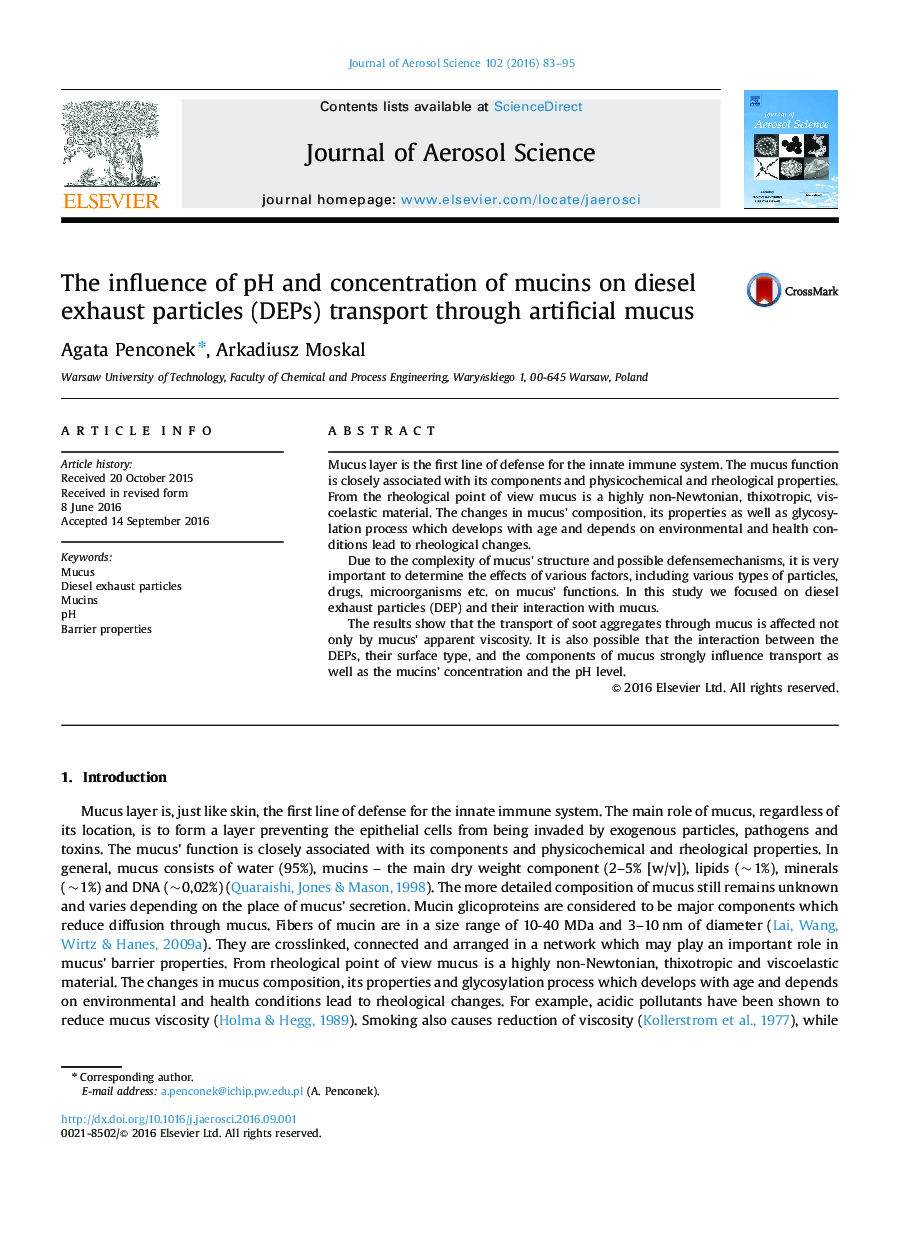| Article ID | Journal | Published Year | Pages | File Type |
|---|---|---|---|---|
| 4452191 | Journal of Aerosol Science | 2016 | 13 Pages |
•Diesel exhaust particles (DEPs) diffuse through artificial mucus.•The pH level of mucus and the mucins׳ concentration influences the DEPs transport.•Diesel exhaust particles affect the apparent viscosity of mucus.
Mucus layer is the first line of defense for the innate immune system. The mucus function is closely associated with its components and physicochemical and rheological properties. From the rheological point of view mucus is a highly non-Newtonian, thixotropic, viscoelastic material. The changes in mucus׳ composition, its properties as well as glycosylation process which develops with age and depends on environmental and health conditions lead to rheological changes.Due to the complexity of mucus׳ structure and possible defensemechanisms, it is very important to determine the effects of various factors, including various types of particles, drugs, microorganisms etc. on mucus׳ functions. In this study we focused on diesel exhaust particles (DEP) and their interaction with mucus.The results show that the transport of soot aggregates through mucus is affected not only by mucus׳ apparent viscosity. It is also possible that the interaction between the DEPs, their surface type, and the components of mucus strongly influence transport as well as the mucins’ concentration and the pH level.
